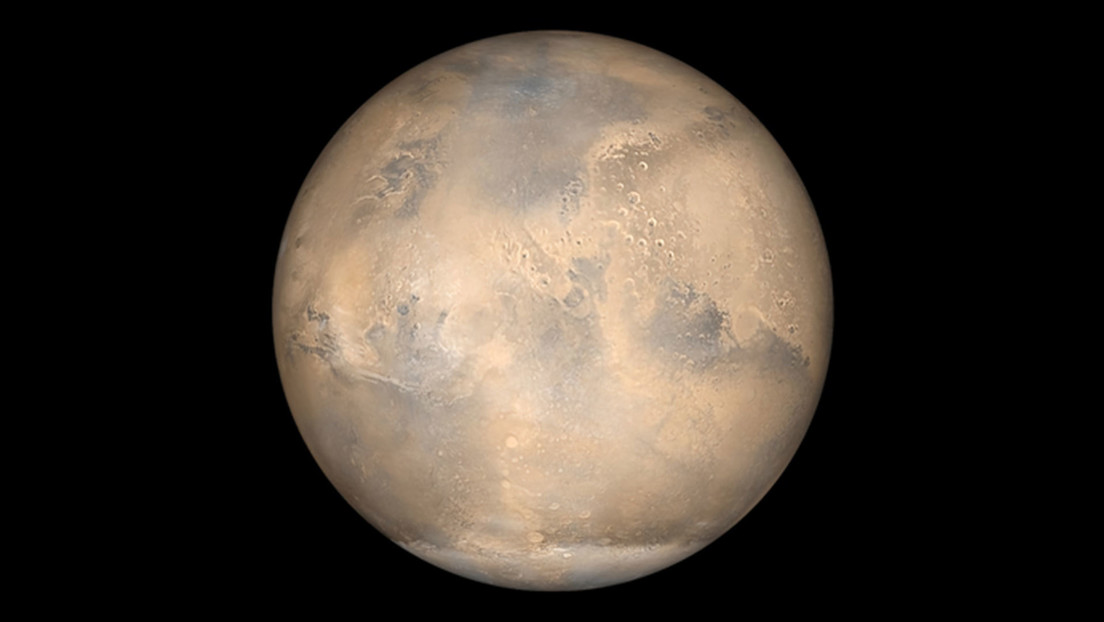
A study by researchers at the University of Copenhagen (UC) in Denmark shows that around 4.5 billion years ago there was enough water on Mars for the entire planet to be covered by an ocean 300 meters deep. In the early years of the planet's evolution, it was "bombarded with ice-filled asteroids" and had a blue appearance, they reported Thursday.
There is actually very little water on Earth by comparison, explains Professor Martin Bizzarro of the UC Center for Star and Planet Formation. "Another interesting angle is that the asteroids also transported organic molecules that are biologically important for life," Bizzarro said.
"This happened within the first 100 million years of Mars. After this period, something catastrophic happened […]. It is believed that there was a gigantic collision between Earth and another planet the size of Mars. It was an energetic collision that formed the Earth-Moon system and, at the same time, wiped out all potential life on Earth," Bizzarro said. In this way, the researchers have really strong evidence that Mars could have had the conditions for life long before Earth.
Thanks to a meteorite of Martian origin discovered on Earth, which is billions of years old, researchers were able to learn the history of Mars. The meteorite was once part of the planet's original crust that has remained the same forever. This offered a unique insight into what happened at the time the solar system was formed.
"Plate tectonics on Earth erased all evidence of what happened in the first 500 million years of our planet's history. Plates are constantly moving and are being recycled and destroyed within our planet. On the contrary, Mars has no plate tectonics, so the planet's surface preserves a record of the planet's earliest history," Bizzarro explains.
Analysis of a chromium isotope in the Martian meteorite indicated that the primordial Martian crust was strongly modified by the impact of carbonaceous bodies outside the Solar System. The researchers were able to estimate that the late delivery of this volatile-rich material to Mars provided an exotic water inventory corresponding to a global water layer more than 300 m deep. They also considered that these bodies provided some amino acids. These results were published this Wednesday in Science Advances. (Text and photo: RT in Spanish)